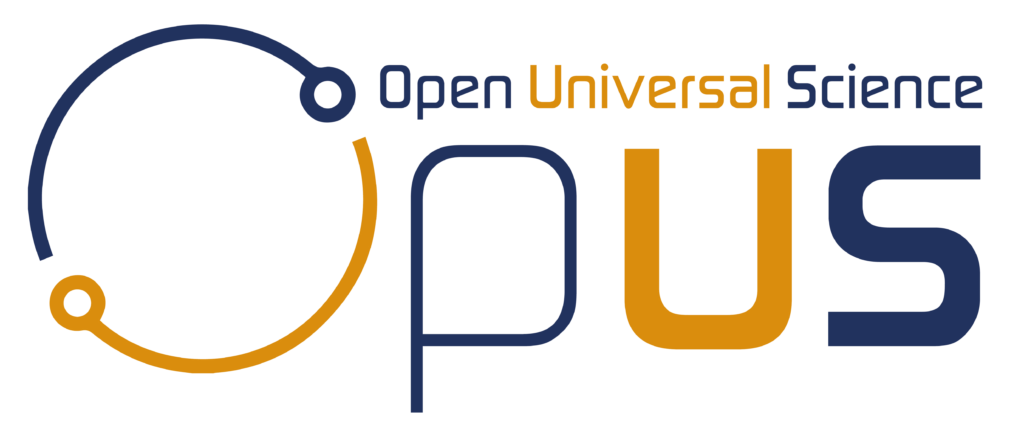
Horizon Europe funds a project ‘OPUS’
Horizon Europe funds a project ‘OPUS’ https://opusproject.eu/wp-content/uploads/2022/09/opus-main_logo-transparent-big-lightbg-1024x436.png 1024 436 Open and Universal Science (OPUS) Project Open and Universal Science (OPUS) Project https://opusproject.eu/wp-content/uploads/2022/09/opus-main_logo-transparent-big-lightbg-1024x436.pngOPUS is a Horizon Europe-funded project of 36 months that started on 1st September 2022 with estimated eligible costs of a total of almost 2 million euros.
The European Commission has awarded PLOCAN as a coordinator with a European Research Area (ERA) consortium grant in the WIDERA programme.
The OPUS project involves 18 different European partners, covering a wide range of organisations with relevant expertise to this project:
- PLOCAN – PLATAFORMA OCEANICA DE CANARIAS
- UNESCO – UNITED NATIONS EDUCATIONAL SCIENTIFIC AND CULTURAL ORGANIZATION,
- ICoRSA – INTERNATIONAL CONSORTIUM OF RESEARCH STAFF ASSOCIATIONS,
- UNL – UNIVERSIDADE NOVA DE LISBOA,
- TGB – TECHNOPOLIS CONSULTING GROUP BELGIUM,
- YERUN – YOUNG EUROPEAN RESEARCH UNIVERSITIES NETWORK,
- EURODOC – EURODOC-LE CONSEIL EUROPEEN DES DOCTORANTS ET JEUNES DOCTEURS,
- UEFISCDI – UNITATEA EXECUTIVA PENTRU FINANTAREA INVATAMANTULUI SUPERIOR A CERCETARII DEZVOLTARII SI INOVARII,
- RCL – Lietuvos mokslo taryba,
- ABIS – THE ACADEMY OF BUSINESS IN SOCIETY,
- MCAA – MARIE CURIE ALUMNI ASSOCIATION, UNIRI – SVEUCILISTE U RIJECI,
- TrustInside,
- VU – VILNIAUS UNIVERSITETAS,
- RESOLVO SRL,
- UCY – UNIVERSITY OF CYPRUS,
- CRAC-Vitae / CAREERS RESEARCH AND ADVISORY CENTRE (CRAC),
- JISC LBG
OPUS will develop coordination and support measures to reform the assessment of research and researchers at Research Performing Organisations (RPOs) and Research Funding Organisations (RFOs) towards a system that incentivises and rewards researchers to practise Open Science.
OPUS understands the term ‘Open Science’ to refer to practices providing open access to research outputs, early and open sharing of research, participation in open peer-review, measures to ensure reproducibility of results, and involving citizens, civil society, and end-users in the co-creation of research and innovation agendas and content. With this interpretation of Open Science, OPUS will conduct a specific focus on reforming the research(er) assessment system to incentivise and reward researchers to take up these practices.
OPUS will deliver a state-of-the-art of existing literature for Open Science, interventions to implement a reformed Open Science system at Research Performing Organisations (RPOs) and Research Funding Organisations (RFOs). OPUS will develop indicators and metrics to monitor the implementation of the interventions. In particular, incentives to reward researchers to practise Open Science will be developed and tested.
In particular, OPUS will test interventions and indicators and metrics for Open Science via 3 pilot RPOs (Nova University Lisbon, University of Rijeka, and University of Cyprus) and 2 pilot RFOs from Lithuania and Romania (RCL and UEFISCDI). These pilot organisations will learn from both each other and draw experience from external experts in mutual learning exercises. The results of the pilots will be translated into policy briefs and thematic workshops that will help to raise awareness, build trust, and drive the uptake of Open Science in the community.
The project will commence on 1 September 2022 with an implementation period of 36 months. The kick-off conference is taking place on September 19 – 20, 2022 in Gran Canaria.
- Posted In:
- OPUS News

